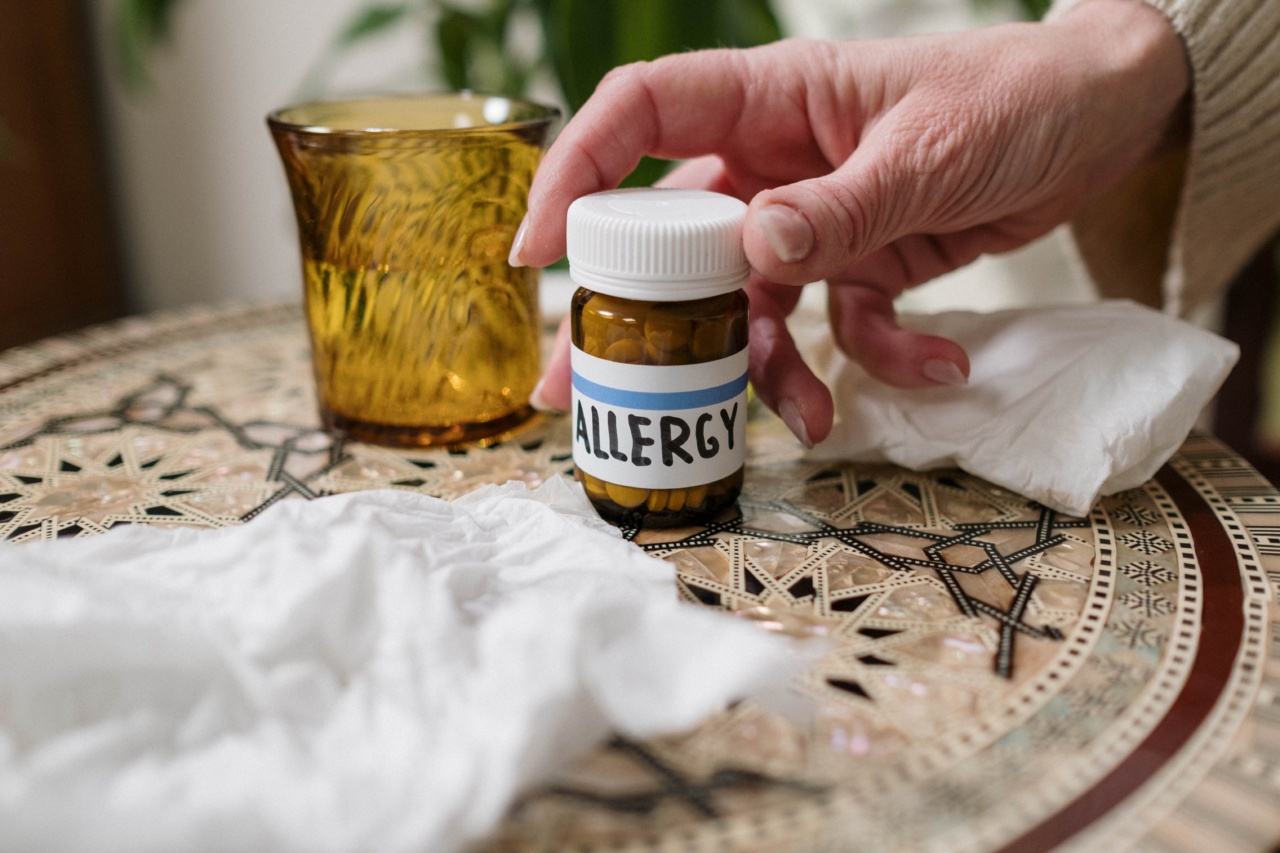Pets are amazing companions that not only provide emotional support but also improve our health. However, for people with allergies, owning a pet comes with its challenges.
Allergies are caused by allergens, which are found in pet fur, dander, saliva and urine. If you’re allergic to pets, their presence in your home can cause uncomfortable symptoms such as sneezing, coughing, and itchy eyes.
While it may seem like avoiding pets is the only solution for allergy sufferers, there are several ways to care for pets while keeping allergies at bay. In this article, we’ll discuss tips to help you care for pets when you’re allergic.
1. Choose the right pet
The first step in dealing with allergies is choosing the right pet. Some pets are less likely to cause allergies than others.
For instance, dogs with hair instead of fur such as poodle and schnauzers produce less dander, which makes them a great choice for people with allergies.
People with allergies may also opt for other pets such as fish, birds, or reptiles. These pets are free of fur and do not produce allergens, making them a great alternative for allergy sufferers.
2. Clean your pets regularly
Cleaning your pets regularly can help reduce the allergens in your home. Give them a bath at least once a week to get rid of pet dander and other allergens from their fur.
Use pet shampoos that are designed for allergies and avoid fragranced products that can trigger allergies.
Additionally, brush your pets regularly to remove dead skin cells and loose fur before it gets a chance to spread throughout your home. Use a high-efficiency particulate air (HEPA) filtered vacuum cleaner to clean pet hair from carpets and furniture.
3. Keep your home clean
Cleaning your home regularly can help reduce the allergens that cause allergies. Vacuum your carpets and furniture using a HEPA filtered vacuum cleaner, which captures allergens such as pet dander and pollen.
Use a damp cloth to wipe surfaces such as bookshelves, countertops and windowsills to remove pet hair and dander.
Additionally, invest in air purifiers that use HEPA filters. These purifiers can remove pollutants from the air such as pet dander, pollen, and dust mites, providing clean air for you to breathe.
4. Create a pet-free zone in your home
Creating a pet-free zone in your home can help reduce the exposure to allergens. Choose a specific room in your home such as your bedroom, where your pets are not allowed. Keep the door closed to keep pet hair, dander, and other allergens out.
Avoid fabric upholstered furniture and choose leather or vinyl furniture instead. These materials do not trap dander, making them a great choice for allergy sufferers.
5. Consult your physician
If you’re allergic to pets, it’s essential to consult your physician before getting a pet. Your physician can determine the severity of your allergies and offer advice on how to manage your allergies when living with pets.
Your doctor may also recommend allergy shots, medication, or other treatments that can help reduce the allergy symptoms. Make sure to follow the prescribed treatment plan to keep your allergies under control.
6. Take care of your pet’s health
Taking care of your pet’s health is crucial in reducing allergens. A clean and healthy pet produces fewer allergens than a sick pet. Ensure your pet’s vaccinations, flea treatment, and deworming schedules are up to date.
Additionally, ensure your pet is on a balanced diet to maintain good health. Healthy pets shed less and produce fewer allergens, reducing the risk of allergies.
7. Be vigilant and observe your allergies
It’s essential to be vigilant and observe your allergies when living with pets. Keep a watchful eye on your symptoms and take action when you notice any changes. If your allergies seem to be getting worse, it may be time to consult your physician.
Take note of the severity of your allergies and monitor your pet’s behavior. If you notice your pet showing signs of illness such as sneezing or coughing, take them to the vet for a check-up.
8. Keep a clean litter box
If you’re a cat lover, it’s essential to keep a clean litter box to reduce pet allergens. Keep the litter box in a well-ventilated area and clean it at least once a day.
Use an unscented litter and wear gloves when cleaning the box to avoid direct contact with the litter.
Avoid letting children clean the litter box as their immune systems are not yet strong enough to handle pet allergens.
9. Use pet-friendly cleaning products
When cleaning your home, use pet-friendly cleaning products that are safe for both you and your pets. Avoid using harsh chemical products that can cause respiratory problems and skin irritation.
Choose natural cleaning products such as baking soda, vinegar, and lemon juice. These products are not only safe but also effective in cleaning pet hair, dander and other allergens.
10. Invest in hypoallergenic bedding
Hypoallergenic bedding can help reduce the exposure to allergens while you’re sleeping. Invest in hypoallergenic pillows, duvets, and mattress covers to keep pet allergens at bay.
These bedding materials are made from materials that do not trap dander and other allergens.
Add extra layers to your bedding and wash it regularly in hot water to get rid of any pet allergens that may have accumulated.
Conclusion
Caring for pets when you’re allergic can be challenging, but not impossible.
Choosing the right pet, keeping your home clean, creating a pet-free zone in your home, and consulting your physician are some of the ways to care for your pet while keeping allergies at bay.
Be vigilant and observe your allergies, keep your pet healthy, and use pet-friendly cleaning products to reduce allergens. With these tips, you can enjoy the love and companionship of your pets without compromising your health.



























